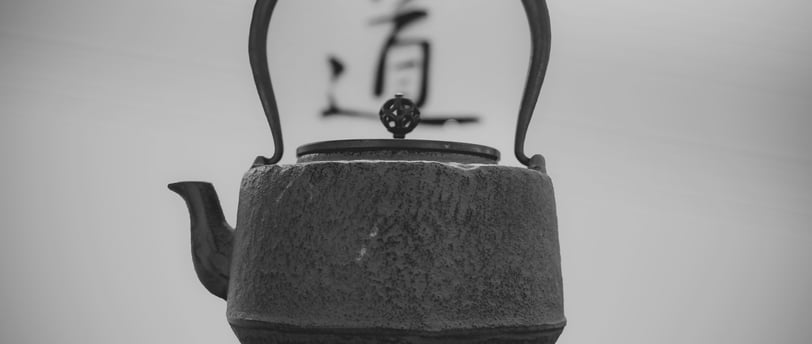Psychological Elevation: Overcoming Human Weakness through Educatio
In Part VI of our exploration of the Dao De Jing and education, we turn to the subtle art of psychological transformation. Laozi teaches that true guidance flows not through force or authority, but through humility and quiet influence. Like rivers yielding to the lowlands, great educators lower themselves to truly uplift others. This post invites us to rethink how we teach—not by correcting loudly, but by cultivating trust, softening pride, and gently awakening the wisdom already within each learner.
2/9/20252 min read


"The reason why rivers and seas can be lords over a hundred valleys
is because they are good at staying low.
Thus, if the Sage wishes to be above the people,
they must speak as though beneath them.
If they wish to lead the people,
they must place themselves behind them...
Because they do not compete,
no one under heaven can compete with them.
...
When great resentment is resolved,
there will still be residual resentment;
how then can this be called good?
Thus the Sage holds the contract,
but does not press for payment.
The virtuous lead by holding agreements;
the unvirtuous lead by demanding settlements.
...
The teaching that is without words,
the benefit that is without action —
few in the world can match them."
— Dao De Jing (Selected passages)
The Educator’s Posture Shapes the Outcome
The success of education often hinges on the self-positioning of the teacher.
Laozi teaches that educators should approach their students with humility, like the oceans that lie low to gather all rivers.
Anxiously striving to assert authority, he warns, only invites resistance — a reflection of his deep insight into human nature.
Truth transcends time and space. Laozi's understanding of human psychology resonates across cultures and centuries.
Even Dale Carnegie, the "father of adult education" in America, echoed similar sentiments in his classic work, How to Win Friends and Influence People (also known as How to Deal with Human Weaknesses).
Carnegie advised: "If you want to teach someone, first ensure they don't feel like they are being taught.
Make them feel as though they already knew it and simply forgot."
This wisdom reveals a profound truth: Education is not only an intellectual journey but a psychological one — a process that requires guiding and sometimes waging an internal psychological battle, until true psychological elevation is achieved.
Understanding and Overcoming Human Pride
Human beings are born with a strong sense of pride — natural and often necessary.
However, this pride can become an obstacle when it prevents us from recognizing our faults or seeking new knowledge.
Carnegie observed:
"When our errors are exposed,
we instinctively defend ourselves,
not because the idea is right,
but because our ego feels threatened."
It’s easy to publicly acknowledge that many are more talented than we are —
but far harder to genuinely admit that someone close to us might surpass us in some way.
This tension is famously embodied in the saying: "Writers disparage other writers."
Educators must transcend this weakness. Their mission is not only to expand knowledge but also to help others overcome the weaknesses of the human psyche.
This is why figures like Socrates are revered: "I know one thing: that I know nothing." Such humility made Socrates the paragon of philosophical inquiry.
How to Guide Students toward Self-Realization
For teachers and parents who wish to help students recognize and correct their faults, the first step is addressing the psychology of pride.
We must ask:
How can we subtly and gently guide children without provoking defensiveness?
How can we cultivate humility and eagerness to learn?
Laozi advises: "Hold the contract, but do not demand from others."
Instead of criticizing mistakes openly and harshly, educators should preemptively explain consequences and patiently guide the student. Direct confrontation often leads to lingering resentment ("余怨"), whereas gentle, encouraging, and equal communication soothes the wounded ego and nurtures growth.
Mistakes naturally provoke feelings of shame — but if met with understanding and support, shame can be transformed into gratitude and inner motivation.
This educational method, rooted in respect and psychological insight, creates results that are positive, lasting, and truly transformative.
To teach without speaking,
To benefit without striving —
This is the highest form of education,
as envisioned by Laozi.
